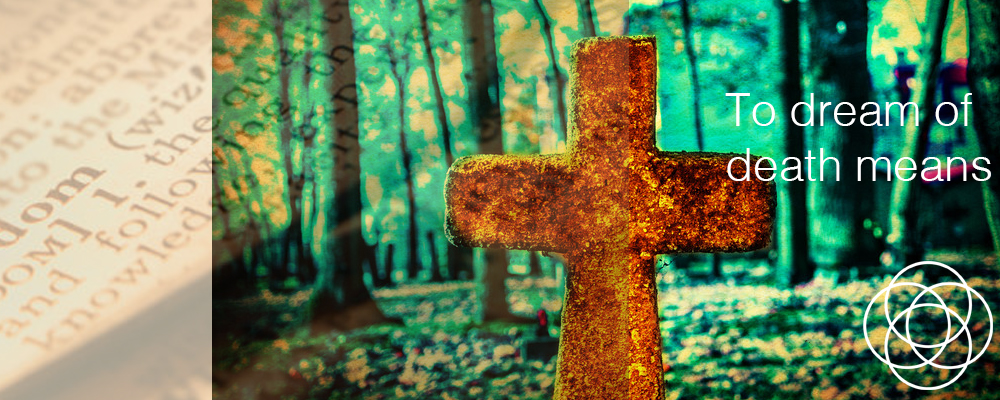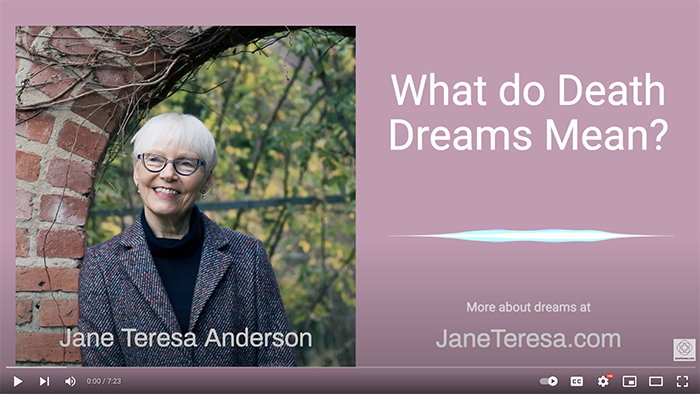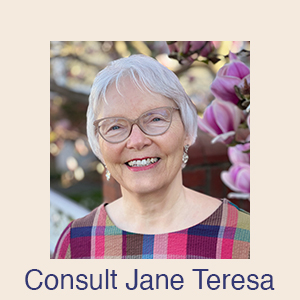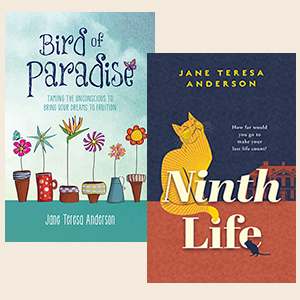“My mum says that when you dream of death it means there’s going to be a birth in the family,” said Georgie, although she was clearly disturbed about her own dream of a gravestone freshly engraved with an illegible name.
I was interpreting dreams on Mix 106.3FM Canberra’s Breakfast Show earlier this week, and Georgie had called to ask about her dream where she walked through a rose archway and stood beside her uncle looking at the gravestone, trying to read the name.
If we’d had time to deeply explore, we would have been able to work out why Georgie’s dreaming mind pictured a rose archway (not another flower, or not merely a stone archway, or a gate), and why she was accompanied by her uncle. We would have been able to explore the other details of her dream, what happened before she walked through the archway, what dramas were involved, and how she was feeling. These things are all important.
You can’t take a dream dictionary approach to understanding dreams because our dream symbols are personal, plucked from our past experiences and blended with our recent experiences to help paint an up-to-the-minute picture of how we see the world.
My approach to training dream analysts is to help them apply what I call the dynamic methods – analysing the flow of the dream, the dramas, the feelings, the patterns and perspectives, and more – before considering symbols. Much of the meaningful insight into a dream, and into the dreamer’s mindset and approach to waking life, is achieved in this way before delving into the symbols. Then, and only then, do we enjoy applying methods to unmask personal symbols and, as one of my recent students put it, ‘nail it’.
Georgie, of course, was concerned that her dream was a premonition, either of death (her uncle, herself) if she took the dream literally, or of a birth in the family if her mum’s cultural understanding, passed through many generations, was correct.
On very rare occasions our dreams may be premonitions, and some people regularly experience dreaming about people they know who have either just died (unbeknown to the dreamer) or are about to die. But these are rare and special cases. Look back over the dreams you remember: you’ve probably had several dreams about death, all of which were symbolic.
Death is a very common dream theme, and often reflects a feeling that something (not someone) is coming to an end, or losing energy and vitality. Change is the nature of life, and to grow and flow often requires us to let go of what no longer serves us. Dreams may picture our struggles with this in themes of holding on, letting go, falling, flying, death, birth, conflict and so on. Think dynamics, rather than symbols.
Many traditional cultures believe that dreams of death predict a birth in the family. Historically, these cultures tended to have big nuclear families, big extended families, and plenty of ‘pretend’ uncles and aunties and cousins from the wider community. With death dreams being common, it’s no surprise that a fair number of death dreams may have coincided with family births – especially if you allow a few months between the dream and the birth announcement.
On the other hand, maybe these cultures understood that dreaming of endings paved the way for new beginnings, but their metaphors got taken literally along the way.
Many traditional cultures believe that dreams of losing teeth predict a death in the family. Dreams of losing teeth, and dreams of death, are two of the most common dream themes worldwide. Sooner or later at least some of those dreams are going to coincide with news of death or birth in the family.
Georgie’s mum has probably frequently mentioned her belief that dreams of death predict a birth in the family, so if Georgie had a bit of an inkling that someone was pregnant or about to give birth, her dreaming mind might bring up the death dream as a personal symbol of her feelings about the impending birth.
I bet you want to know what I said to Georgie on the radio show, don’t you?
I reminded Georgie that our dreams reflect the last 1-2 days, and said that I felt her dream reflected a recent change where she has come through (like walking through the arch) a situation with hope and vitality (like the roses) and is ready to put something from the past to rest (the gravestone).
“How does that sound?’ I asked. Along with the relief, came the confirmation, Georgie’s recognition of how the dream relates to her life.
That’s one of the things I love about doing radio work: the moment people can relate the interpretation to what has been going on during the last couple of days, their fear of a scary dream being literal evaporates and they have something meaningful and helpful to take into their daily life. And the message filters through to the listeners as well. Once we lose the fear of our dreams, and dedicate time to exploring them more deeply, they have so much to teach us about ourselves and the ways in which we walk through this world.
You might also enjoy




